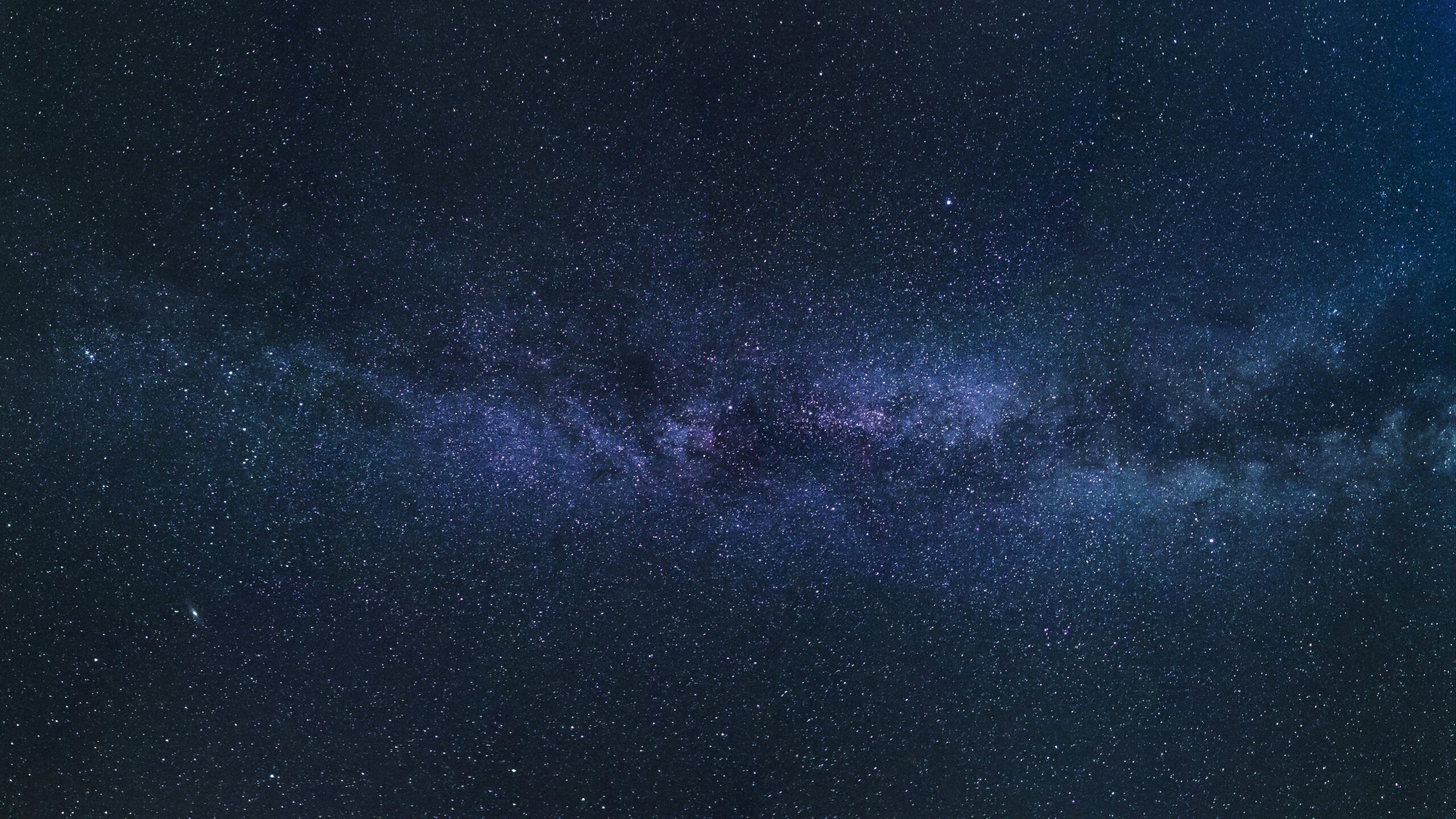The universe stretches endlessly before us, yet we appear utterly alone. This haunting paradox drives one of science’s most profound questions: where is everybody? 🌌
In 1950, physicist Enrico Fermi posed a deceptively simple question during a casual lunch conversation at Los Alamos National Laboratory. Looking up at the stars, he wondered aloud why, given the billions of galaxies and the vast age of the cosmos, we haven’t encountered any evidence of extraterrestrial civilizations. This question crystallized into what we now call the Fermi Paradox, and it has troubled scientists ever since.
The numbers are staggering. Our galaxy alone contains roughly 400 billion stars, many of which host planetary systems. Even conservative estimates suggest millions of potentially habitable worlds exist within the Milky Way. Given that the universe is approximately 13.8 billion years old, there has been ample time for intelligent life to emerge, develop technology, and spread across the cosmos. Yet we observe nothing but silence.
🔭 The Great Filter: A Cosmic Barrier to Life
Enter the Great Filter theory, proposed by economist Robin Hanson in 1996. This hypothesis suggests that somewhere between the emergence of life and the development of spacefaring civilizations capable of colonizing galaxies, there exists an extraordinarily difficult step—a filter that prevents most or all life from progressing beyond a certain point.
The Great Filter could explain the eerie cosmic silence we observe. It represents a critical stage in the evolutionary development of intelligent life that is so challenging that virtually no species manages to pass through it. This concept has profound implications for humanity’s future and our understanding of our place in the universe.
Think of the Great Filter as a cosmic gauntlet. Life must pass through numerous stages: from simple chemicals to self-replicating molecules, from single-celled organisms to complex multicellular life, from simple animals to intelligence, from intelligence to technological civilization, and finally from planetary civilization to interstellar presence. The filter could exist at any of these stages or potentially at multiple points along this journey.
Behind Us or Ahead? The Critical Question 🤔
The most unsettling aspect of the Great Filter theory isn’t merely its existence—it’s the question of where this filter lies in relation to humanity’s current development. This location determines whether we should feel relieved or deeply concerned about our species’ long-term survival.
If the Filter Lies Behind Us
If humanity has already passed through the Great Filter, this represents genuinely good news for our future prospects. It would mean that the incredibly difficult steps have already been overcome, and we’re among the rare success stories in cosmic history. Perhaps the emergence of life itself is the Great Filter—the jump from non-living chemistry to self-replicating biology might be so improbable that Earth represents a cosmic fluke.
Other candidates for filters behind us include the evolution of eukaryotic cells, the development of sexual reproduction, or the emergence of intelligence itself. Each of these transitions took hundreds of millions or even billions of years on Earth and required specific environmental conditions and lucky circumstances. If one of these represents the Great Filter, we’ve essentially won the cosmic lottery already.
This scenario explains the Fermi Paradox neatly: we don’t see alien civilizations because they simply don’t exist in significant numbers. The universe might be teeming with simple microbial life, but complex, intelligent civilizations remain extraordinarily rare.
If the Filter Lies Ahead of Us
The alternative possibility is considerably more sobering. If the Great Filter awaits us in the future, it suggests that something catastrophic typically befalls technological civilizations before they can spread beyond their home worlds. This interpretation carries ominous implications for humanity’s survival.
What could this future filter be? Several possibilities emerge from our current technological trajectory. Nuclear warfare, climate catastrophe, engineered pandemics, artificial intelligence gone awry, nanotechnology disasters, or resource depletion could all represent existential threats that most civilizations fail to navigate successfully.
In this scenario, the galaxy might be littered with the ruins of civilizations that destroyed themselves shortly after achieving technological sophistication. We would be standing at the precipice of the same fate, with our survival far from guaranteed.
⚗️ Examining Potential Filter Candidates
To better understand the Great Filter theory, we must examine the specific stages where this barrier might exist. Each represents a critical juncture in the path from lifeless matter to cosmic civilization.
The Abiogenesis Barrier
The origin of life itself remains one of science’s deepest mysteries. Despite decades of research, we still don’t fully understand how non-living chemistry transformed into living biology. Laboratory experiments have produced amino acids and other organic compounds from simpler molecules, but creating a truly self-replicating system remains elusive.
If abiogenesis is extraordinarily rare, Earth might be one of very few places in the observable universe where life emerged. This would place the Great Filter firmly behind us and suggest that our existence represents an almost miraculous improbability.
The Complexity Leap
Life existed on Earth as simple prokaryotic cells for roughly two billion years before eukaryotic cells emerged. This transition, which involved one cell engulfing another in what became a permanent symbiotic relationship, was crucial for the later evolution of complex life. The rarity of this event on Earth suggests it might be genuinely difficult to achieve.
Similarly, multicellular life took billions of years to evolve, and the Cambrian explosion of animal diversity occurred relatively recently in geological terms. Each of these transitions could represent filter candidates.
The Intelligence Hurdle
Intelligence, particularly human-level abstract reasoning and technology-building capacity, evolved only once on Earth despite billions of years and millions of species. Many successful organisms—from bacteria to sharks to insects—have thrived for hundreds of millions of years without developing anything resembling human intelligence.
This suggests that intelligence might not be an inevitable outcome of evolution. It requires specific environmental pressures, the right physical attributes, and considerable luck. The filter might lie in the improbability of intelligence emerging at all.
🌍 Technological Self-Destruction: The Most Troubling Filter
Perhaps the most discussed potential filter is technological self-destruction. This hypothesis suggests that civilizations routinely destroy themselves shortly after developing advanced technology, creating a narrow window between technological capability and cosmic extinction.
Consider humanity’s current situation. We possess the technological capacity to destroy ourselves multiple times over through nuclear weapons. Climate change threatens to destabilize our civilization within the next century. Synthetic biology could enable the creation of devastating engineered pathogens. Artificial intelligence development proceeds rapidly with potentially catastrophic risks poorly understood or managed.
The timing is suspicious. We’ve had nuclear weapons for less than a century—a mere blink of an eye in cosmic terms. Yet we’ve already come frighteningly close to nuclear war on several occasions. The Cuban Missile Crisis, the 1983 Soviet false alarm incident, and other near-misses suggest we might not be particularly competent at managing existential risks.
The Technological Adolescence Theory
Some researchers propose that civilizations face a critical “adolescent” period when they possess destructive capabilities far exceeding their wisdom to manage them. This period might last only a few centuries—a brief window where self-destruction is most likely. Civilizations either mature through this phase and develop sustainable practices, or they perish.
Humanity currently finds itself in precisely this vulnerable stage. Our technology has outpaced our social and political evolution. We remain tribalistic, territorial, and short-sighted despite possessing godlike powers over our environment and our own genetic code.
🚀 The Berserker Hypothesis and Other Dark Possibilities
Some variations of the Great Filter theory incorporate even darker possibilities. The “berserker hypothesis” suggests that aggressive alien civilizations might actively destroy emerging technological societies to eliminate potential competitors. In this scenario, broadcasting radio signals into space—as humanity has done for over a century—might be catastrophically unwise.
Another grim possibility is that advanced civilizations inevitably develop technologies that destroy them in ways we haven’t even imagined yet. Perhaps physics itself contains traps—dangerous discoveries that seem beneficial but ultimately prove fatal to those who uncover them.
Virtual reality addiction, where civilizations retreat into simulated worlds and lose interest in physical exploration, represents another potential filter. If sufficiently advanced virtual environments become indistinguishable from reality and infinitely preferable, civilizations might simply disappear into digital worlds, abandoning space exploration entirely.
🔬 What Recent Discoveries Tell Us
Recent astronomical discoveries have significantly refined our understanding of the Great Filter’s probable location. The Kepler space telescope and other observational programs have revealed that planets are extraordinarily common. Nearly every star hosts planetary systems, and rocky planets in habitable zones appear abundant throughout the galaxy.
This finding shifts the probability landscape considerably. If planets suitable for life are common, then any Great Filter related to planetary formation or habitability seems less likely. This pushes the filter either earlier (abiogenesis or the evolution of complexity) or later (intelligence emergence or technological self-destruction).
The discovery of extremophiles—organisms thriving in conditions once thought impossible for life—suggests that life might be more adaptable and potentially more common than previously believed. Microbes survive in boiling acidic pools, frozen Antarctic lakes, deep underground, and even in the vacuum of space. If life is this resilient, perhaps the filter lies not in life’s emergence but in its evolution toward complexity and intelligence.
🎯 Implications for Humanity’s Future
The Great Filter theory carries profound implications for how humanity should approach its future. If we take the hypothesis seriously, it should fundamentally influence our priorities and decision-making.
The Search for Microbial Life
Paradoxically, discovering simple microbial life on Mars, Europa, or Enceladus would actually be concerning news from a Great Filter perspective. If life emerges readily wherever conditions permit, it suggests the filter doesn’t lie in abiogenesis. This would increase the probability that the filter lies ahead of us—in our future rather than our past.
Conversely, extensively searching the solar system and finding Earth to be the only place harboring life would suggest we’ve already passed through the Great Filter. This would be profoundly reassuring for humanity’s long-term prospects.
Managing Existential Risks
If the Great Filter likely lies ahead, managing existential risks becomes humanity’s paramount concern. Nuclear weapons control, climate change mitigation, artificial intelligence safety research, biosecurity, and other existential risk reduction efforts deserve far more attention and resources than they currently receive.
Organizations like the Future of Humanity Institute and the Center for the Study of Existential Risk work to identify and mitigate potential civilizational threats. Their research suggests we dramatically underinvest in existential risk reduction compared to the stakes involved—literally the continuation of human civilization and potentially all Earth-originating consciousness.
💫 Becoming a Multi-Planetary Species
One robust response to the Great Filter, regardless of its location, is becoming a multi-planetary species. Establishing self-sustaining settlements on Mars, the Moon, or orbital habitats would ensure that no single catastrophe—whether natural or self-inflicted—could extinguish humanity entirely.
This represents a form of civilizational backup. Just as we back up important data across multiple drives and locations, spreading humanity across multiple worlds provides redundancy against existential threats. A pandemic, nuclear war, or asteroid impact might devastate Earth but leave off-world colonies intact to preserve human knowledge and culture.
SpaceX, NASA, and other space agencies are actively working toward this goal. Establishing permanent human presence beyond Earth might be one of the most important undertakings in human history—potentially the key to passing through the Great Filter if it lies ahead.
🌟 Beyond Survival: Becoming Galactic Gardeners
If humanity successfully navigates potential Great Filters and establishes itself as a mature spacefaring civilization, we might face profound responsibilities. We could become “galactic gardeners”—deliberately spreading life and consciousness throughout the cosmos.
If the Great Filter makes advanced civilizations extraordinarily rare, each one that successfully passes through it becomes precious beyond measure. We might be the only conscious observers in millions of light-years, the only beings capable of appreciating the universe’s beauty and complexity.
This perspective suggests that humanity’s long-term survival isn’t just important for us—it might be cosmically significant. We could be the universe’s best or only hope for developing consciousness capable of understanding itself.

🔮 The Filter and Fermi’s Question Reconciled
The Great Filter theory provides perhaps the most comprehensive answer to Fermi’s famous question. We don’t observe alien civilizations because somewhere along the developmental pathway from chemistry to cosmic empire, there exists a barrier so formidable that virtually no one passes through it.
Whether this filter lies behind us, ahead of us, or partially in both directions remains uncertain. Our observations of the universe continue to refine these probabilities, but definitive answers remain elusive. Each new discovery—from exoplanet abundance to the resilience of extremophile life—shifts our understanding slightly.
What seems certain is that the Great Filter exists in some form. The mathematical improbability of the observable universe appearing so empty despite its vast size and age demands explanation. Either we’re extraordinarily fortunate to have passed through already-rare events, or we face extraordinary challenges ahead.
Understanding our position relative to the Great Filter might be the most important question humanity can ask. The answer determines whether we should feel confident about our cosmic future or deeply concerned about imminent existential threats. It influences how we prioritize scientific research, allocate resources, and think about humanity’s long-term trajectory.
As we peer into the cosmos and contemplate our place within it, the Great Filter stands as a reminder of both our uniqueness and our vulnerability. We exist in a universe that appears silent and empty, yet full of potential. Whether we join the cosmic silence or become its breakers depends on our ability to recognize, understand, and successfully navigate whatever filters lie between us and our destiny among the stars. 🌠
Toni Santos is a cosmic anthropology researcher and universal‐history writer exploring how ancient astronomical cultures, mythic narratives and galactic civilizations intersect to shape human identity and possibility. Through his studies on extraterrestrial theories, symbolic cosmology and ancient sky-observatories, Toni examines how our story is woven into the fabric of the universe. Passionate about celestial heritage and deep time, Toni focuses on how humanity’s past, present and future converge in the patterns of the stars and stories of the land. His work highlights the dialogue between archaeology, mythology and cosmic theory — guiding readers toward a broader horizon of meaning and connection. Blending anthropology, cosmology and mythic studies, Toni writes about the architecture of human experience on the cosmic stage — helping readers understand how civilizations, story and consciousness evolve beyond Earth. His work is a tribute to: The sky-woven stories of ancient human cultures The interconnectedness of myth, archaeology and cosmic philosophy The vision of humanity as a participant in a universal story Whether you are a historian, cosmologist or open-minded explorer of universal history, Toni Santos invites you to travel the cosmos of human meaning — one culture, one myth, one horizon at a time.




